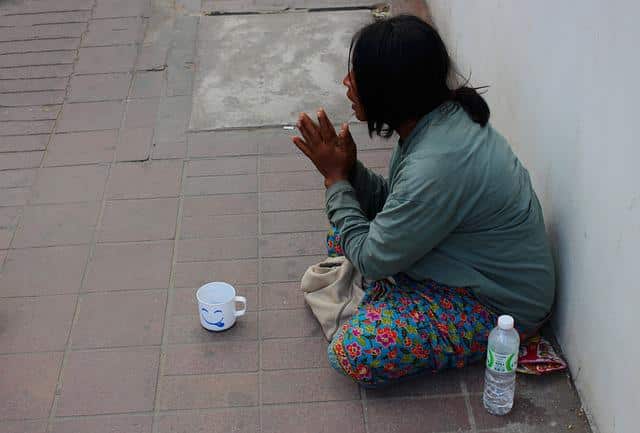
Charity is associated with solidarity .
Charity is a term that serves to define a theological virtue belonging to the Christian religion , which consists of loving God above all things and one's neighbor as oneself. It is a selfless love that arises from the mere desire to give of oneself to others without expecting anything in return.
For Christianity, charity is one of the three theological virtues , along with faith and hope . The Christian loves God for himself and his neighbor for the love of God . Charity implies that the end of all actions is love.
From this sense, the concept of charity is also used to talk about the help provided to those in need , a work of charity being the selfless action of an individual in favor of another who is helpless. Some examples in which the concept appears are: "Bill Gates has donated a large part of his fortune to charity" , "My grandmother, since she retired, has dedicated herself to charity" , "In this town, many families live of charity .
Charity, philanthropy and solidarity
Charity can be used as a synonym for philanthropy , whose etymology refers to "love of humanity" . Because he feels love for the human race, the philanthropist helps others without asking for anything in return and without being interested in the other's response. Charity or philanthropy can be developed individually, through an informal group or through an organization.
Charity can also be understood as alms given to the poor or, in general, as an attitude of solidarity with the suffering of others : "Thanks to your charity, my children will be able to eat tonight," "At school they always tell me that "We must have charity and be supportive."

Many people survive thanks to charity.
The negative look
Like all extremes, charity can also be harmful. Both from a minimalist and social point of view it could bring negative consequences that undermine the spirit of an individual and society.
Since we are born we are taught not to be selfish, this is considered one of the most negative emotions in human beings; However, the success of many people could lie in it. Because? Because only by appreciating ourselves can we be able to do something good for others; Therefore, a dose of selfishness to achieve what we set out to do can help us be better people and give when we really want to do so and not as a socially imposed obligation .
The State and charity
Since the world has existed, many governments have supported their success with the people in charity: offering houses and material goods to those most in need to obtain their vote in exchange. However, these assets arise from the work of every other part of society who, without being exactly rich, pay their taxes and try to be up to date with the payments that the State demands of them.
Charity from the State would not be bad or harmful to a society if the assisted party did its part to make the situation change . That is, if they accepted charity but worked to improve their situation and return that benefit received to society sooner or later. We could say that charity should be treated for such individuals as a painkiller and not a cure.
At first glance, an act that can arise from compassion and respect for another, can become a harmful work for the person themselves in the first case or for the entire society, in the second. Therefore, while helping the helpless is something we should practice more often , truly helping ourselves should also be a subject we master perfectly.
